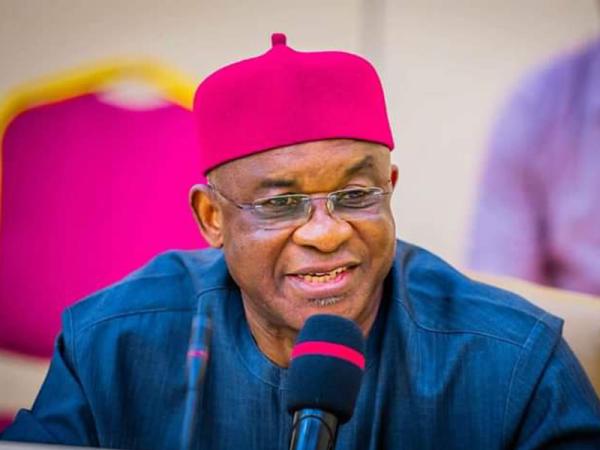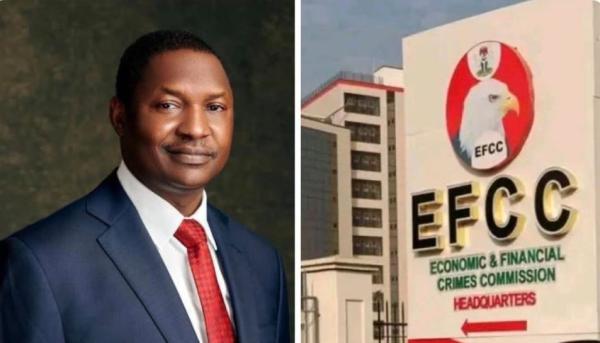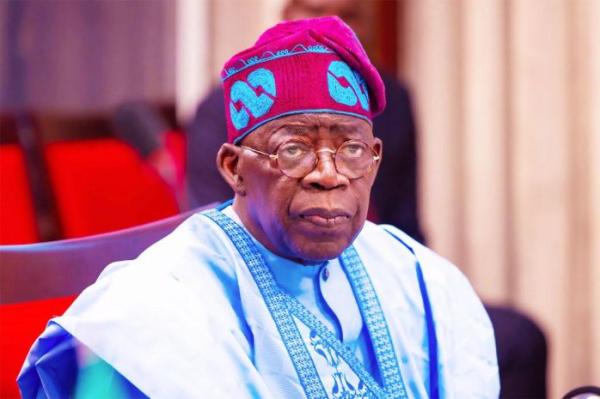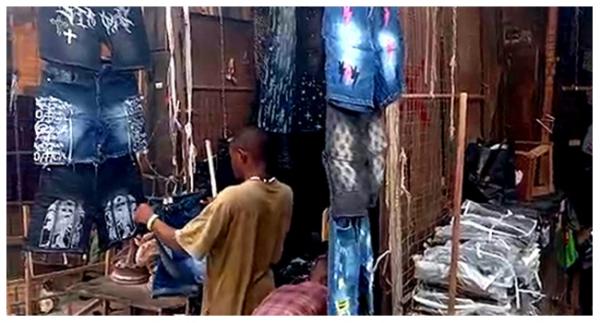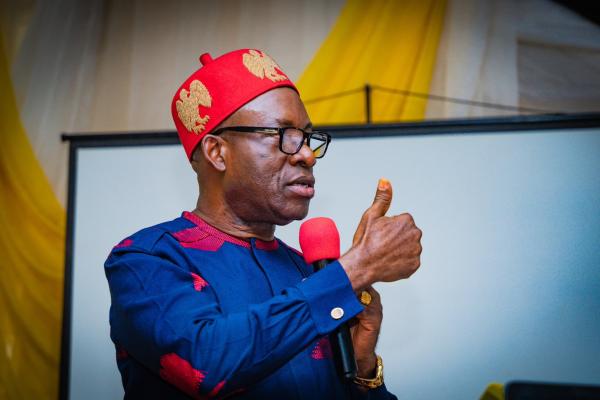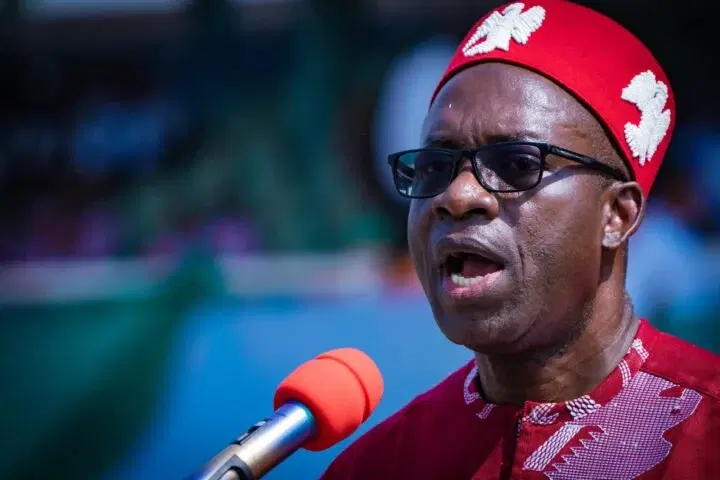
Six persons died yesterday while seven others were injured when two female suicide bombers blew up themselves at Kantin Kwari textile market in Kano less than two weeks after a similar incident happened at Kano Central Mosque which claimed more than 100 lives.
Blood stains and rubble are seen next to a burned motorcycle after twin suicide blasts at Kantin Kwari textile market in northern Nigeria’s commercial city of Kano on December 10, 2014. Two female suicide bombers killed at least four people at a busy market in northern Nigeria’s largest city Kano, less than two weeks after a horrific attack at the city’s central mosque. Kano state police commissioner Adenrele Shinaba said the blast at the Kantin Kwari market in Kano city was “a twin suicide bombing carried out by two young girls in hijab”.
Kano State Police Commissioner, Mr Adenrele Shinaba, who confirmed the bomb attack, said “the blast was a twin suicide bombings carried out by two young girls in hijab. They came by the market and asked to be directed to a public convenience. The bombs detonated, killing them and four others”, adding that at least seven others were injured and have been taken to the hospital.
According to an eyewitness, the suicide bombers were denied access when they asked to use the convenience which led to a serious argument that drew a large crowd.
Vanguard learnt that immediately a noticeable crowd gathered at the scene, one of the suicide bombers immediately detonated her bomb. The incident which triggered panic in the restive city compelled the authority to shut the textile market to forestall looting and also to enable the security agents comb the market.
A female banker, who did not want her name in print, told Vanguard that the blast sent shock waves to the banking hall as customers and officials scampered for safety.
She said: “We heard the blast and in no time, a thick smoke enveloped the banking hall and it was a total confusion as people struggled through the exit route.”
In his account, the leader of the market traders union, Abdullahi Abubakar, said the blasts hit a parking area rather than the main market. He estimated that the attackers were in their late teens and said they were accompanied by a man who disappeared after the girls blew themselves up.
Blood stained the walls and floors of affected buildings following the blasts. Angry youths converged on the area and were kept at bay by police and soldiers, while the bombers’ remains were then taken away, an AFP correspondent said.
Onslaught against terrorists’ll continue
—Minimah
Meanwhile, following the recent victories recorded by the Nigerian Army in the battle to clear Boko Haram terrorists from seized towns in Adamawa, Yobe and Borno states, Chief of Army Staff, Lt. General KTJ Minimah, has declared that the onslaught to dislodge the terrorists from every inch of Nigerian soil will continue and the army backed by the Nigerian Air Force will win the war.
Asked what was the new strategy that had come into place resulting in the military reclaiming territories, the army boss simply said: “We have just stepped up the tempo. It will be sustained and we will definitely defeat them.”
Minimah, who was speaking at the commissioning of newly constructed blocks of kennels for military Police dogs in Abuja, said the current security challenges bedevilling our country and sub region called for concerted efforts by all officers and soldiers to enhance the capacity of the Nigerian Army in whatever little way they can.
“In the past 11 months of my leadership of the Nigerian Army, efforts have been made to re-equip, re-train and task-organise the Nigerian Army to effectively tackle contemporary national security challenges, particularly in the North eastern part of the country.
“One of such efforts is the K9 component of the Nigerian Army which was established in 2012 and which has contributed tremendously to support ongoing Nigerian Army operations nationwide. The military working dogs have been employed for several duties including detection of explosives and search and rescue operations.”
20 military working dogs
While noting that there are presently over 20 military working dogs deployed in the North-East theatre, Minimah said the injection of these dogs into ‘Operation Zaman Lafiya’ have yielded dividends in several respects.
Earlier, Provost Marshal of the Nigerian Army, Major General Patrick Akem noted that the revitalization of the K9 component which was moribund for years, was to assist in the ongoing counter terrorism and counter insurgency operations especially in the North0-East, pointing out that given the increasing utility and versatility of the military working dogs, his corps embarked on a breeding programme to increase ‘our holdings’.
“Additionally, the office of the National Security Adviser in June this year, donated 22 military morking dogs to us. The increase in the MWDs holdings put strains on the existing facilities at the dog centre. Consequently, a way had to be found to accommodate the dogs, which was done from savings made from allocations from the office of the COAS.
“Consequently, the Military Police Corps under my direction embarked on the construction of a block of 30 Military Working Dogs kennels to accommodate the dogs. The work on the block of 30 kennels was completed at the end of November.
He gave some of the tasks performed by the Military Working Dogs as arms cache searches, force protection sweeps, building sweeps, entry control points and access control points, open area search, cordon and search, route clearance as well as search and rescue during disasters.
Source: Vanguard












